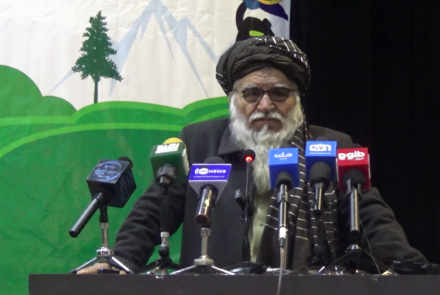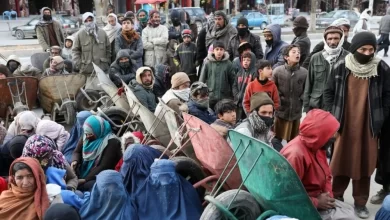Matiul Haq Khalis: Environment Is a Human Issue, Not Political

Matiul Haq Khalis, head of the National Environmental Protection Agency, has called on the international community to support Afghanistan in combating the consequences of climate change and drought.
Speaking at an environmental program in Herat, he emphasized that Afghanistan has suffered severe damage from climate change and drought and urged the global community not to politicize the issue.
“The environment and climate change are purely humanitarian matters and have no connection to politics,” said Khalis. “We have discussed this with UNAMA and several organizations, and they have assured us that they share our stance on keeping environmental issues apolitical. In the future, we will work together on these matters.”
Meanwhile, local officials in Herat report that, in recent years, tens of thousands of people have been displaced from neighboring provinces due to climate change and drought. They urge the interim government to provide essential living facilities in the original locations of the displaced communities.
Abdul Ali Muttaqi, head of the Environmental Protection Department in Herat, stated: “We call on the government to support those who have been displaced due to climate change, losing their livelihoods and agricultural products. Alternative solutions, such as expanding agriculture and orchards, should be implemented to assist them.”
Ahmadullah Muttaqi, head of Herat’s Department of Information and Culture, said: “Nearly 100,000 saplings have been planted to expand green spaces. The municipalities, agriculture, and urban development departments are working to enhance greenery and orchards. Our department is also focusing on raising public awareness about environmental conservation.”
Participants in the program stressed the need for afforestation, green space expansion, and pollution control to improve the environmental situation. However, they noted that the lack of post-planting tree care remains a serious challenge.
University professor Abdul Wasi Amiri said: “Every year, hundreds of thousands of fruit-bearing and non-fruit-bearing trees are planted in Herat and across Afghanistan, yet no systematic care and maintenance plans are put in place.”
The melting of nearly 20% of the country’s glaciers, prolonged droughts, devastating floods, and deforestation are cited as major consequences of climate change in Afghanistan.
According to environmental protection officials, these changes have also led to the spread of various diseases across the country.



